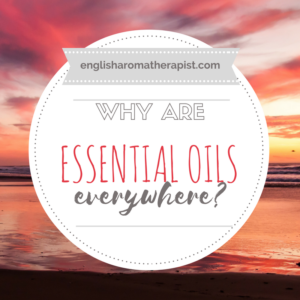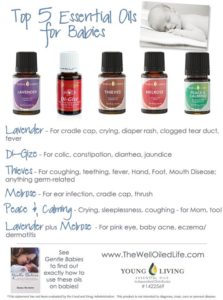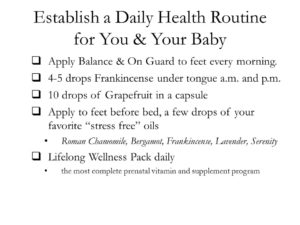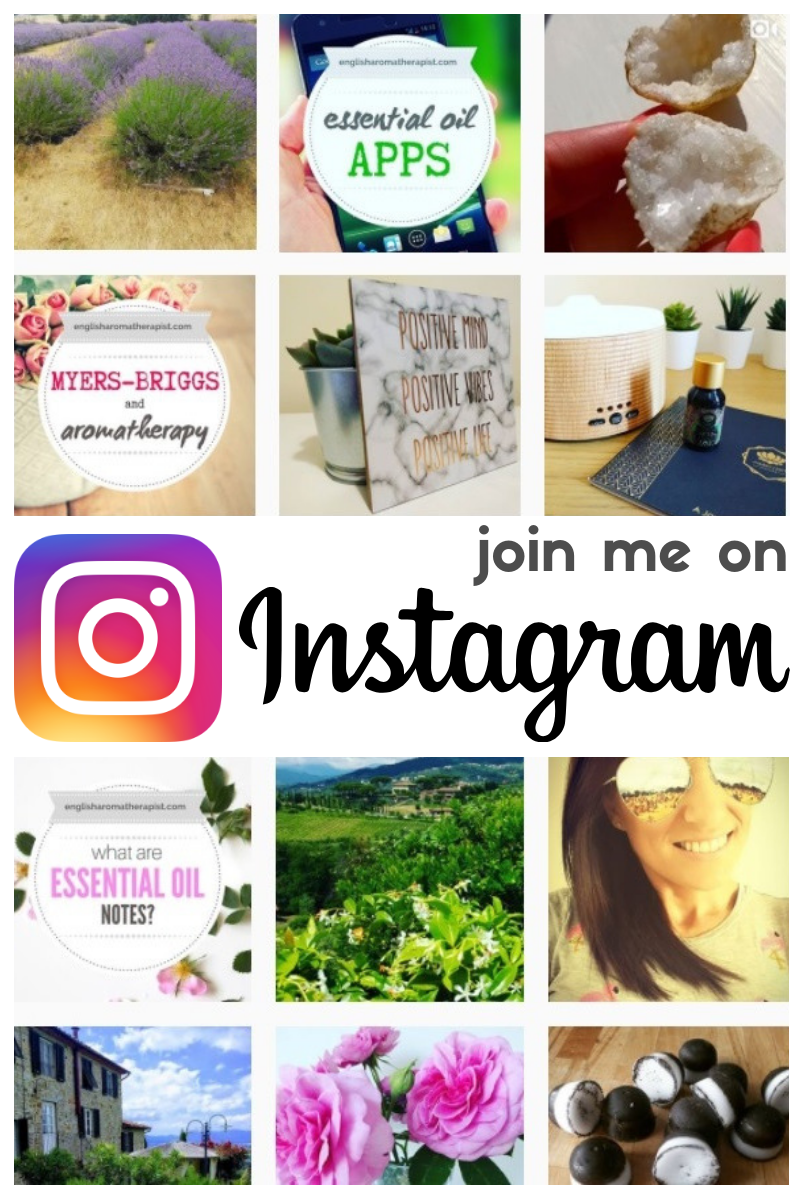Why are Essential Oils EVERYWHERE?

In an increasingly health-obsessed society, it is unsurprising that the alternative therapy industry has experienced a surge of popularity. Every day, we are bombarded with scaremongering news stories about the dangers of our toxin-filled, medicated, overweight, stressed-out lifestyles.
Thanks to the internet, a mind-boggling plethora of information is accessible with the click of a mouse. Clearly, this has many advantages. It is now easier than ever to research any given subject, without having to buy books, visit a library or, indeed, even leave your house. Society is undoubtedly enriched by sharing knowledge – as they say, “Knowledge is power” – and much of this online information serves to educate, inform, inspire and enhance our lives.
However, the flip-side to this “information superhighway” (as the internet was originally referred to in the 1990s) is that we are now facing information overload from a vast array of conflicting sources – many unregulated, unauthorised or simply untrue.
This has resulted in vast swathes of the internet containing health advice that is misleading, inaccurate and, in some cases, dangerous (this is what inspired me to the set up The English Aromatherapist blog and YouTube channel). It is almost impossible to go online and NOT stumble across an advert or blog article that makes spurious health claims. The truth is, our obsession with health has created a multi-billion dollar industry. From cure-all remedies to magic weight-loss solutions, the internet is awash with people looking to make a quick buck.
With a growing distrust of modern medicine and the so-called “Big Pharma”, we are increasingly turning towards alternative health solutions. A couple of generations ago, aromatherapy had no place in mainstream culture. Like other complementary therapies, it was regarded with a mixture of disdain and confusion. Essential oils were expensive and not readily available to the average consumer. Western society had conditioned us to believe that every health complaint necessitated a prescription for pills.
Now, the growing acceptance of alternative remedies has led to a revolution in the way we approach our health and wellbeing. Essential oils are now more affordable and accessible than ever before. You can probably find them in your local supermarket, nestling between the multivitamins and the painkillers. Scientific studies have proven that aromatherapy offers more than just the placebo effect when it comes to improving our physical and mental health. These days, essential oils are commonly touted as a natural method of treating everything from anxiety to arthritis.
Why do I keep seeing the same 2 brands?
One of the biggest factors behind the essential oil revolution has been the emergence of MLM (“Multi Level Marketing”) brands. The industry is dominated by two main players, whose business models are centred around network distribution. Individuals are encouraged to sign up to become distributors of essential oils, with the prospect of earning a commission on sales revenue. As with any network marketing scheme, those at the top of the tree will enjoy the richest rewards.
As a concept, this is not entirely a bad thing. MLM brands have done a fantastic job in spreading awareness of essential oils and normalizing their use in everyday life. The downside, however, is that this commercialization of essential oils has created a profit-hungry approach to aromatherapy. More effort is devoted to maximizing sales commission than providing accurate advice.
Misinformation starts to proliferate like wildfire around blogs, newsletters and social media sites. One of the selling points of becoming an MLM distributor is that anyone can sign up and begin selling essential oils to the public. This means that consumers are taking health advice from unqualified distributors who have no idea what they are talking about.
The scope for inaccurate and misleading information to spread online is not only worrying, but potentially extremely dangerous. Unqualified distributors of essential oils are advising their customers to regularly ingest essential oils, apply undiluted essential oils directly on to the skin, and even to use essential oils as eye drops! Three pieces of advice that should definitely be filed in the “Don’t try this at home” category. Read more on what I think about Wintergreen advice in my blog post here.
One of the worst contenders for “Bad Aromatherapy Advice” was this blog post, which advocated using up to 18 drops of neat essential oil on the skin and ingesting 14 drops every day (plus diffusing various oils on a daily basis, in case that wasn’t enough!)
I’ve also seen some terrible advice about using neat essential oils on babies, such as this:

Few qualified aromatherapists would use Thieves oil on a baby. Recommending it as a remedy for teething implies that it would have to be used orally, which is potentially very unsafe. Most of these oils are actually not recommended for use on children under 2 years on Young Living’s own website!
Not to mention posts like this, which is terrible advice for anyone – let alone pregnant mums!

Essential oils are now being touted as “miracle cures” for everything from healing broken bones to curing cancer. These wild claims do nothing for the integrity of professional aromatherapists. Let’s bring back some common sense to the aromatherapy industry, before it loses all credibility. My mission is to spread awareness of how essential oils can be used safely and effectively, from an unbiased perspective. With better education, we can put an end to misleading and dangerous nonsense online.
What to read next: Wintergreen Oil: Safe or Toxic?
Follow me on...
Share this on...
